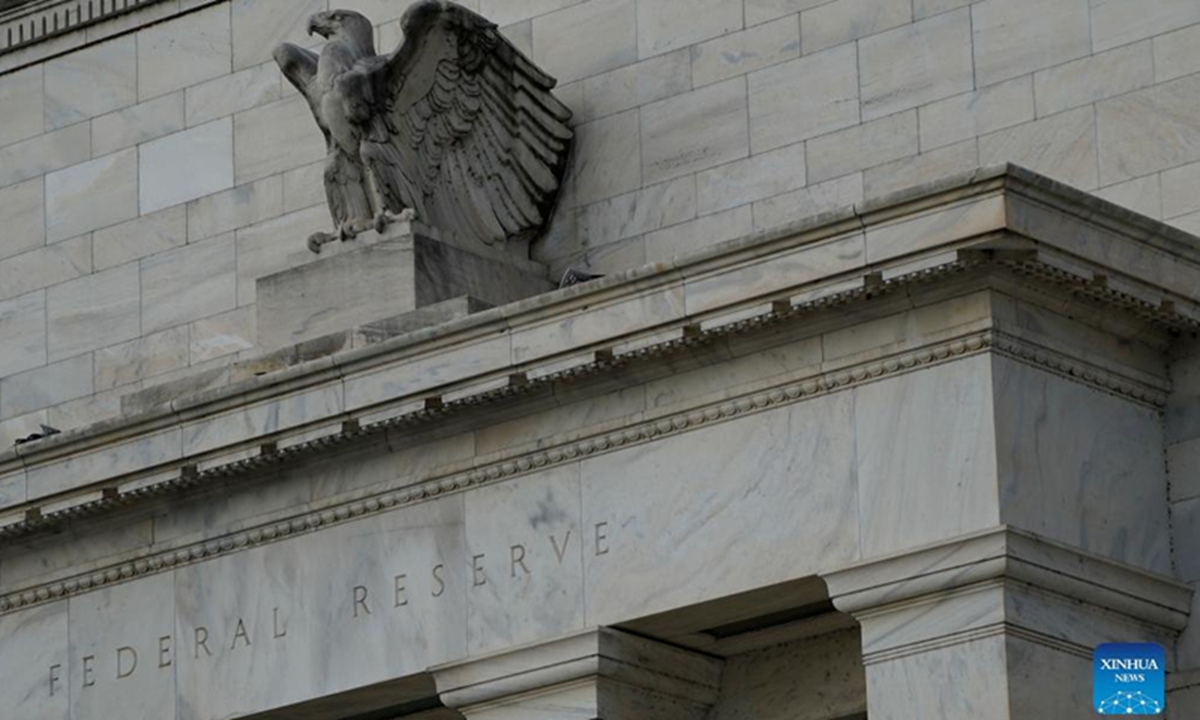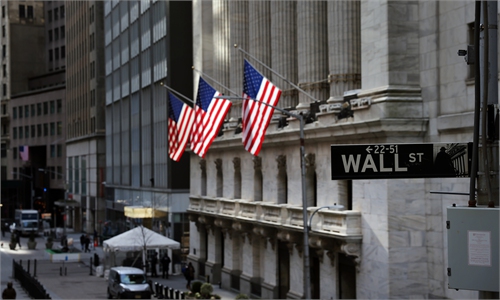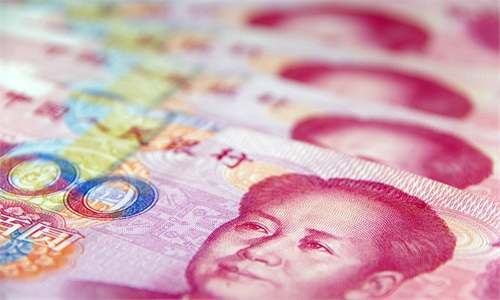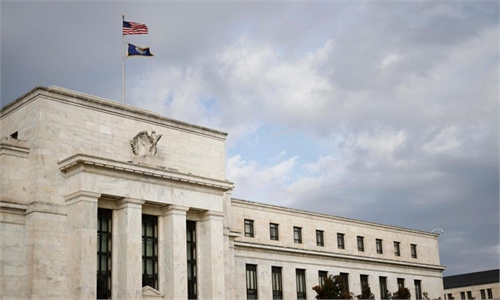
US Federal Reserve?Photo: Xinhua
India's central bank on Wednesday raised its key interest rate by 50 basis points to 4.90 percent, the second hike in over a month. The move came just one day after Australia's central bank on Tuesday increased interest rates by the most in 22 years.The aggressive rate hikes in the two Asia-Pacific economies are a clear indication that the soaring global inflation hasn't been tamed, even though more than 50 global central banks have already raised interest rates to combat worse-than-expected inflationary pressure this year.
The World Bank on Tuesday cut its forecast for global economic growth in 2022, citing high inflation and slow growth as the main reasons. Speaking during a US Senate Finance Committee hearing on the same day, US Treasury Secretary Janet Yellen said "unacceptable" inflation is not a problem exclusive to the US, while attributing the climbing energy and food prices to the Russia-Ukraine conflict.
While inflation may become a global issue, that is no reason for the US to shirk its responsibilities for causing global inflation. The US is behind or even caused various crises, including the Russia-Ukraine conflict and the looming food and energy crises.
The US' excessive monetary ease over the past two years also pushed up prices. Then, the Fed misjudged the inflation situation and was reluctant to take necessary intervention until it is too late and the global inflation is now spiraling out of control.
Now, in order to rein in soaring prices, the US had to raise interest rates. In doing so, the US is exporting its own crisis to the rest of the world. Since the US dollar is the world's leading reserve currency and the most important currency for settlement, the US' tightening monetary policy will have global consequences. Both quantitative easing and sudden monetary tightening could be ways for the US to use its dollar hegemony to pass its own crisis to the rest of the world.
The Fed's shrinking of its balance sheet means that a large amount of dollar assets will inevitably be withdrawn from global markets, thus indirectly transferring the debt and inflation risks to vulnerable economies. Even before the Fed's policy shift, some developing countries already faced serious debt burdens. So rate hikes in developed countries will further precipitate the risk of capital outflows and currency depreciation in these economies, aggravating their debt risks accordingly.
This week, the European Central Bank is set to strengthen its commitment to prop up vulnerable eurozone countries' debt markets if they are hit by a sell-off as a result of future interest rate increases, the Financial Times reported on Monday.
Compared with those eurozone countries, more emerging economies are even more vulnerable, and rising borrowing cost is expected to pose serious challenges to their development.
Under such circumstances, the wave of US-led interest rate hikes may risk triggering a global recession. The world needs to be vigilant against the risk of a debt crisis following higher rates.
In the face of major changes in global monetary policy environment, China also needs to be fully prepared for external shocks. With its economic recovery stronger than the other parts of the world, China still has sufficient room to adjust its policy tools. A prudent and flexible approach to monetary policy choice will provide more support to the real economy while hedging against possible risks.



